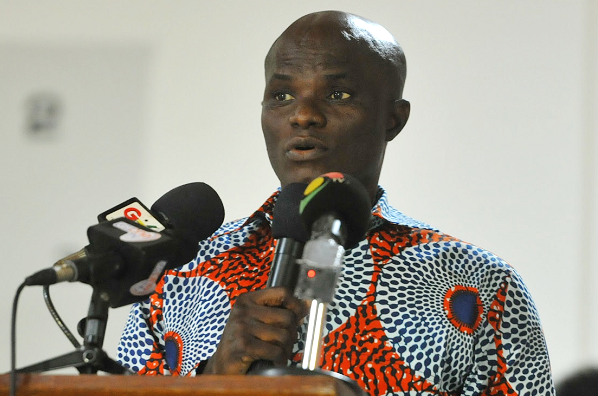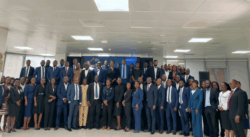Deputy Minister in charge of Fisheries and Aquaculture Development, Francis Ato Cudjoe, has expressed delight and appreciation for the efforts and achievements of women in agriculture, given the especially difficult circumstances they operate under.
Stating that it is common knowledge the contribution women make to feed the population whether as peasant farmers, petty traders and in some settings, as factory hands, the minister revealed that he was particularly impressed by the story of the Nyonkodo Farmers Association, an association of crop and livestock farmers founded, led and constituted almost entirely of women.
Speaking at the second edition of the Livestock, Poultry, Fisheries Training and Tradeshow (LiPF 2020), Mr. Cudjoe expressed his admiration and pledged the support of his ministry to the group in particular, but more importantly, women involved in all spheres of agriculture in the country.
“Unfortunately, even though most of the food production is done by women in our part of the world, women lack access to factors of production generally, it’s a problem faced by all but for women, it’s even worse. We seek to support our women, fully aware that as the saying goes ‘what a man can do, a woman can do better’ and we believe that when we do this, our food deficit will be cut short,” he said.
Whilst commending the Agricultural Development Bank (ADB) – which had representation – for its commitment to the advancement of the livestock sub-sector and the wider agricultural sector, he implored the bank to be more intentional with its support for women.
Nyonkodo Farmers’ Association
Recounting the journey so far, President of the Association, Rebecca Aboagye revealed that the group started out as a handful of loosely related female farmers who began in the village(s), where they had little or no access to land.
She added that they were able to form a collective and access land at Bawjiase after about three years, where a prominent man passing by saw them and was intrigued when he observed that they were all women who were working assiduously on the farm under crude conditions.
“We informed him that we didn’t have the resources to mechanise and scale-up our operations,” she said, adding that “he promised to do whatever it took to help us and made good on his promise. A year after that encounter, we had grown from 42 to approximately 500 women farmers.”
She revealed that the association currently boasts of 5,670 members, approximately 3,000 acres, activities in six regions and counting as well as with engagements in MD2 pineapples, potatoes, maize, rice, tiger nuts and livestock farming.
Although she expressed concern at the general difficulty in accessing finance, especially by women farmers, she was full of gratitude to the Agrihouse Foundation for the support – material and otherwise – that the Foundation has provided to the Association.
On her part, Founder and Executive Director of the Agrihouse Foundation, Alberta Nana Akyaa Akosa stated that the rationale behind the LiPF was the disparity between the livestock and crop sub-sectors, with the former lagging significantly behind and also the immense opportunities that the livestock sector holds for individual farmers and the nation as a whole.
“Our basic motivation for this initiative is drawn from the uninspiring statistics which suggest that livestock rearing has significantly dwindled in the last twenty years, resulting in Ghana spending more than US$400 million annually to import meat products, as eighty-one percent of the meat consumed in the country is imported.
“Over the years, the crop sector has been driven more and our aim is to ensure that all facets of the sector are receiving the same level of attention. We hope to stimulate interest so people come to appreciate the role the livestock value chain is playing and how we can all contribute in commercialising it, creating jobs and identifying the gaps and finding solutions for the sector.
This platform, we believe will help bridge the gap that currently exists between the livestock and the crop sectors and fisheries and aquaculture and position Ghana for greater productivity,” she noted.
The two-day tradeshow witnessed the launch of the Africa Women in Animal Resource Farming and Agribusiness – Network (AWARFA-N). It brought together persons from the USDA Ghana Poultry Project (GPP), the Ministry of Food and Agriculture, the Agricultural Development Bank (ADB), members of Agric associations among others.










